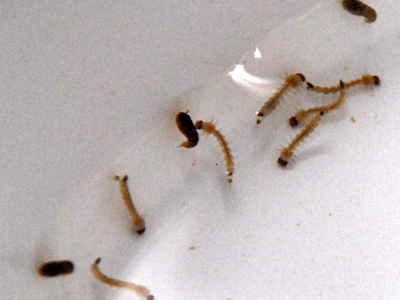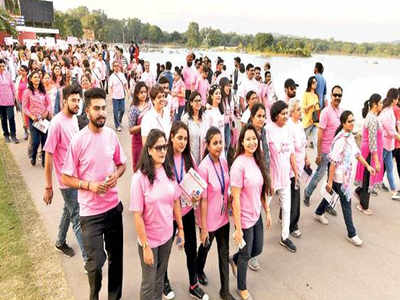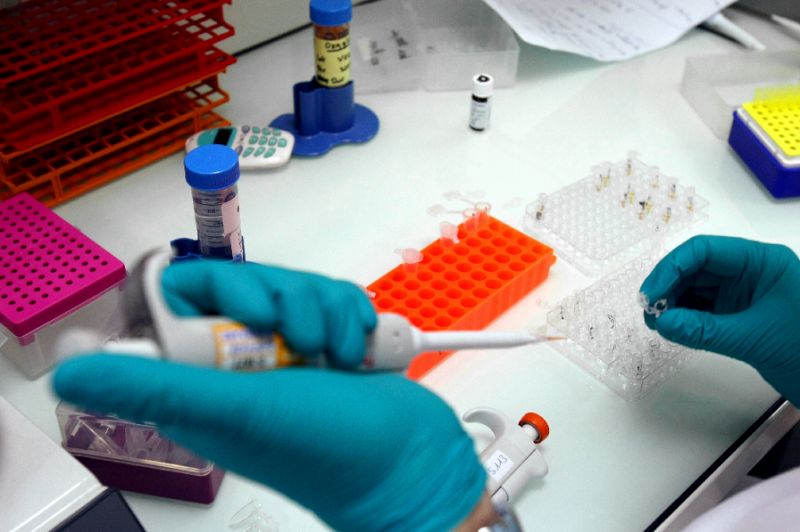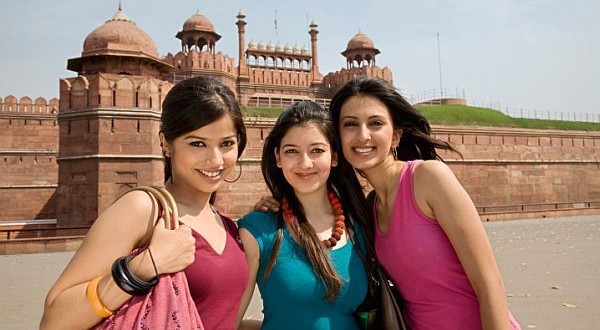New Delhi|HL
Around 200 prominent buildings in Delhi’s VIP zone have been identified with mosquito breeding which include the housing offices of the Environment and Telecommunication ministries and AIIMS following which the civic body has served notices to them. Lady Hardinge Hospital, AIIMS, RML Hospital, Paryavaran Bhawan, Meghdoot Bhawan, Sanchar Bhawan, Baroda House, Kashmir House, Red Cross Society, Shivaji Stadium and Delhi High Court have been served notices by the NDMC after vector-carrying mosquitoes were found breeding in their premises. A challan has also been issued to the All India Radio.
In the backdrop of increasing occurrence of dengue breeding, the Union Health Ministry has written to embassies to not refuse entry to anti-mosquito squads. Due to security reasons, embassies and Union ministries don’t let such squads enter their premises which have contributed to increase the case of dengue.
“Last year, dengue cases were reported from embassies in Delhi. We have written to the authorities that they should cooperate with the New Delhi Municipal Council (NDMC) staff in carrying out checks,” says a senior Union Health Ministry official. According to officials, over 20 diplomats from Germany, UK, US, Canada, Pakistan, Australia, Italy and Palestine and their family members suffered from dengue last year. As per norms, NDMC officers inspect all buildings falling in NDMC areas every year to check mosquito breeding. They issue notices if mosquito breeding is noticed and defaulters are asked to reply within a week on what measures they have taken to stop breeding. If breeding is still found within their premises, NDMC issues challans. Foreign diplomatic missions are not bound by law to allow officials to check breeding and NDMC does not have the authority to issue challans or notices to them.
NDMC is now planning to approach the embassies and foreign missions with the request to provide access to its staff for inspecting their premises. In 2015, NDMC found heavy breeding of mosquitoes in at least 12 embassies which included Ghana, Singapore, Malaysia, Ethiopia and the Czech Republic. “Last year, when NDMC inspectors walked into the Home Ministry building to check if there was mosquito breeding, they faced resistance from officials. Later, when they somehow managed to enter the premises, heavy breeding of mosquitoes was found,” said the health ministry official.
‘A total of 225 notices have been issued so far in the first phase. The team is reviewing the mosquitogenic conditions and offices are being asked to take preventive measures,” said Dr. R.N. Singh, Chief Medical Officer, NDMC. Last year, NDMC had issued over 125 notices to the President’s Estate after heavy mosquito-breeding was found at various places on its sprawling campus. However, officials say the situation has improved this year. “After repeated notices were sent to Rashtrapati Bhawan, a fourmember team was formed to work closely for taking precautionary and control measures, and the situation has largely improved. No breeding has been detected so far,” Dr Singh said. Last year, with over 15,500 cases till mid-November, dengue outbreak was reported to be the worst in the city since 1996 when 10,252 cases and 423 deaths were reported.
According to a municipal report, at least seven cases of dengue have been reported in the national Capital this year, with five of them in the first 10 days of April. The mosquitoes that transmit dengue live among humans and breed in discarded tyres, flower pots, old oil drums and water storage containers close to human dwellings and coolers etc. Unlike the mosquitoes that cause malaria, dengue mosquitoes bite during the day.










